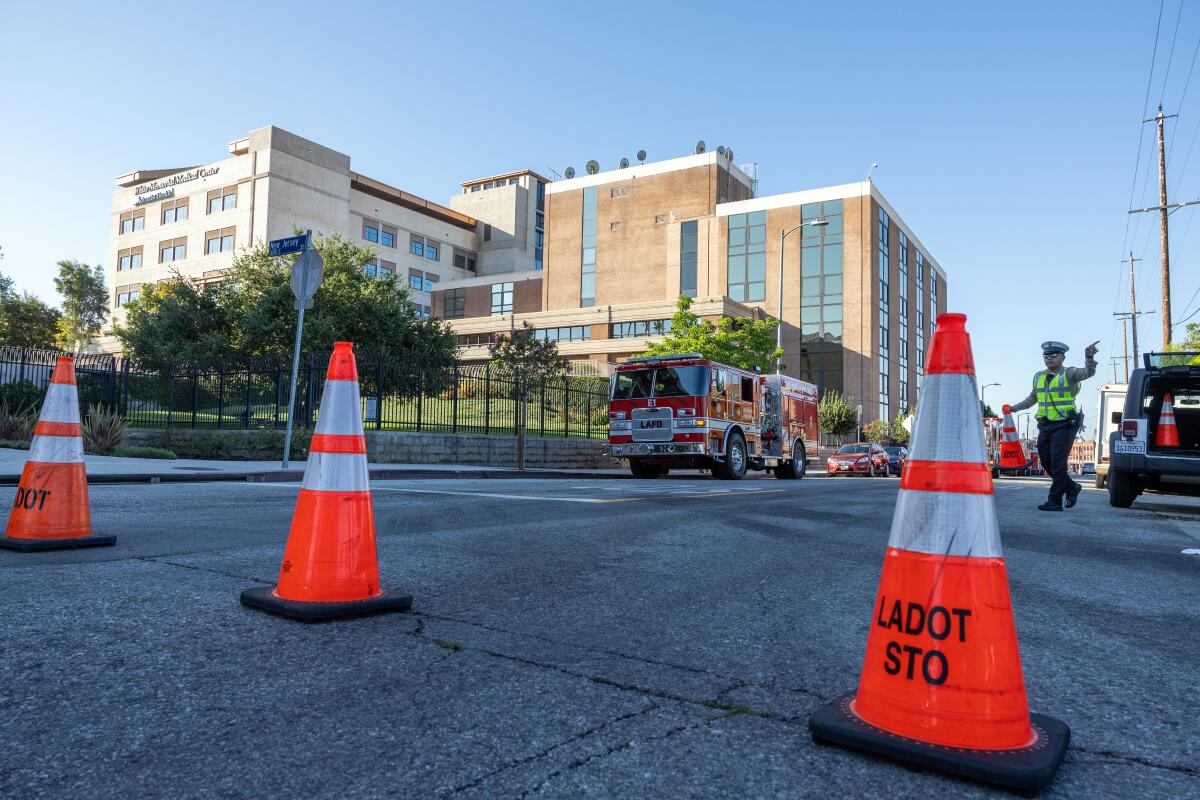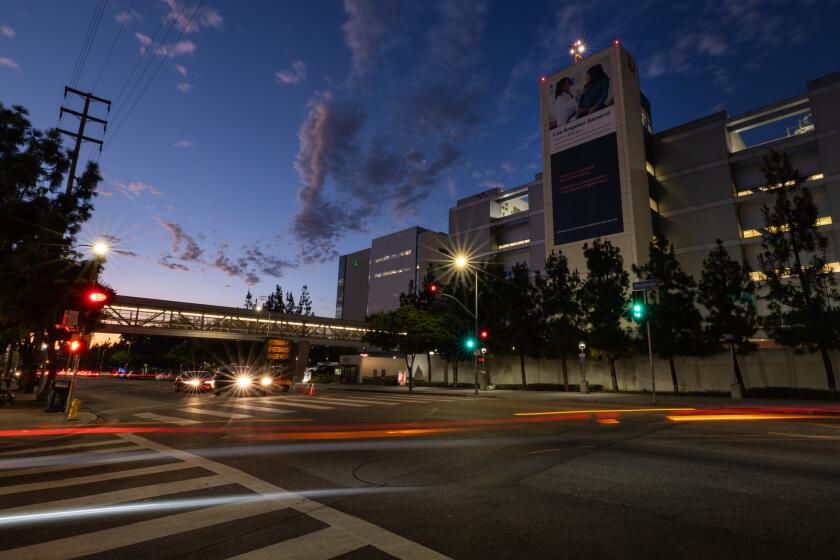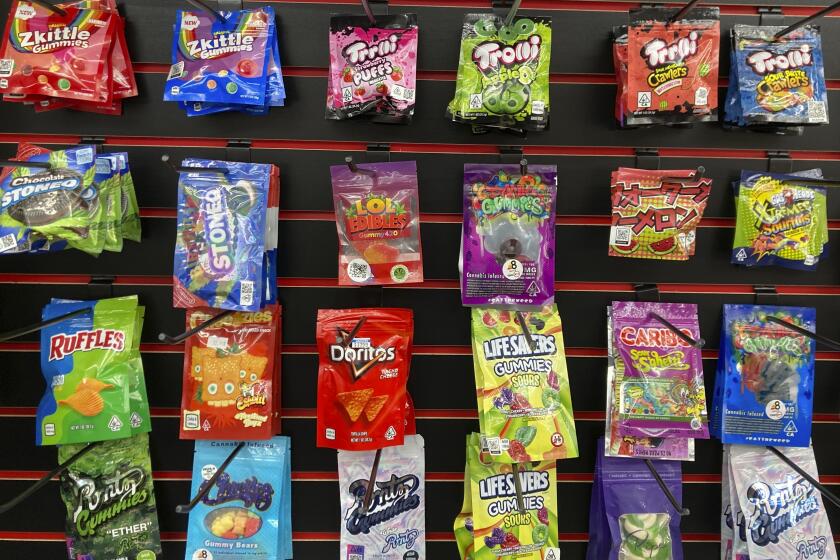California investigation faults L.A. hospital over power outage that caused evacuation

- Share via
A power outage that forced hundreds of patients to be evacuated at a Boyle Heights hospital last summer was the result of lapses in maintaining the facility, a “deficient practice” that could put patients at risk of not getting needed care, state investigators found.
In August, Adventist Health White Memorial lost power hours after Southern California was pummeled by a storm named Hilary. Babies and critical care patients were among those who had to be moved after power went out in part of the hospital, including a building that housed neonatal intensive care. Some patients were moved elsewhere on the hospital campus, while others were relocated to other hospitals.
The L.A. Fire Department said that firefighters had to bring patients down stairwells when elevators were not working and helped some breathe with mask ventilators that rely on squeezing inflatable bags. A baby was born during the outage, assisted by staff shining flashlights, an Adventist Health spokesperson said.
Hospital officials told reporters that they had emergency generators but that generator power had faltered hours after its normal power went out.
Investigators from the California Department of Public Health found that hospital staff charged with maintaining the Boyle Heights facility had failed to keep humidity levels under control in an indoor tunnel, causing electrical equipment that connects an emergency generator to the hospital to malfunction.
That led to the total loss of power at two buildings that hold patients — the East Tower and the Specialty Care Tower — “potentially placing patients at risk of not receiving necessary care and treatments,” investigators found in their report.
The safety-net hospital restrained patients in its psychiatric inpatient unit at the fourth-highest rate of any such facility in the U.S. in 2022.
Hospital staff told the investigators that days before the outage, they had detected a leak from a steam pipe in a tunnel between the Central Plant — which funnels chilled water and steam to heating and cooling systems — and the facility, according to the state report.
Facility staff tried to cover electrical equipment in plastic to protect it from the high humidity, a hospital official told the state investigators. Hospital employees had planned to shut down the steam system and repair it on Aug. 23, the state report noted — but the storm hit and power went out on Aug. 21.
“Patient safety is our top priority,” Adventist Health White Memorial said in a written statement.
“Since the power outage, we have worked with the city and regulatory agencies to confirm that our processes were solid and ensure that our equipment is in top working order,” the hospital said. “Our hospital has available generator power beyond the regulatory requirements, providing an added layer of security for all who rely on us.”
The hospital added that it had immediately begun repairs of the damaged equipment.
Adventist Health White Memorial said the electrical equipment that failed was “designed to withstand harsh conditions.” But after the outage, the hospital installed a humidity monitoring device, which was not a regulatory requirement but “a suggestion after this incident,” the hospital said, adding that its technicians are monitoring it daily.
The Boyle Heights hospital has not been fined over the state findings. In November, state investigators returned to follow up and found that the problems cited in their earlier report had been addressed.
“Thankfully, due to the heroic efforts of our caregivers, we were able to keep all our patients and staff safe and rebound successfully” from the power outage, the hospital said in its statement.
More than 11% of high school seniors said in a national survey that they had used delta-8 THC, a psychoactive compound that is derived from hemp, in the last year.
More to Read
Sign up for Essential California
The most important California stories and recommendations in your inbox every morning.
You may occasionally receive promotional content from the Los Angeles Times.













